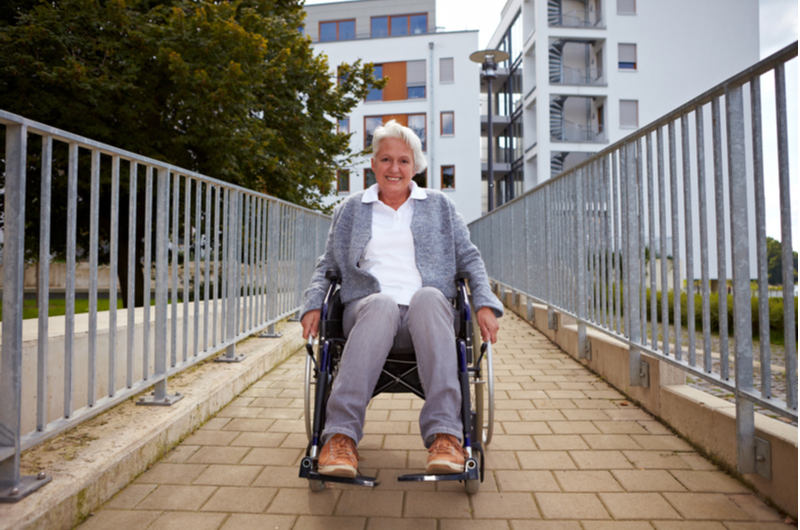Tips on Finding Affordable Senior Housing
Many seniors do not want to spend their retirement years moving from house to house, especially since it becomes harder to move with age. Housing options are also more limited for seniors, since they need homes with minimal upkeep requirements.
The majority of seniors are retired, meaning they live on a limited income. Because of this limited income, some seniors have a harder time afford housing compared to their younger years. If you are having trouble finding affordable senior housing, there are several programs you can use. Some of the senior housing programs are run or funded by Housing and Urban Development (HUD). There are also state and non-profit groups providing affordable homes for seniors.
Income Requirements for Senior Housing
While there are many different senior housing programs to choose from, the majority of programs share similar eligibility requirements. In order to qualify for affordable homes, your income must be below a certain threshold. Typically, your income is compared to the federal poverty limit for the neighborhood you want to move into. If you are unsure of the income limits for an area, HUD has a helpful online tool where you can search limits by state. Eligibility requirements may change or be waived based on your medical conditions. Some programs also make exceptions if you are a veteran.
Section 202 Housing
Section 202 housing is offered by HUD. 202 Housing is similar to HUDs other service, the Housing Choice Voucher Program (HCVP). While HCVP is an excellent service, it often has long wait times, which are not ideal for seniors. In comparison, Section 202 housing is only available if you are at least 62 years old. If you are accepted into the program, your rental costs are covered by HUD.
In addition to the age requirement, you must also be at least 50 percent below the median income for the neighborhood you apply for. The majority of Section 202 homes are available in senior communities. These homes were built with disabled seniors in mind. Some of the services provided through these communities include counseling services, meal and housekeeping programs and easy access to public transit. Many services also include non-emergency medical transit, to help seniors get to medical appointments on time. These buildings are also built with accessibility in mind, including ramps, larger elevators and additional interior grab bars.
Low-Income Housing Tax Credit (LIHTC)
LIHTC is another helpful program available to seniors. LIHTC is run on the state level, so the exact benefits and eligibility requirements may change depending on where you live. However, the program receives funding from HUD, which sets basic guidelines all states must follow. As of writing, there are over 100,000 homes participating in LIHTC.
Through the program, realtors are able to sell or rent homes and apartments to low-income applicants. In exchange, the building owners get a generous tax benefit. In order to apply, you must prove you meet the income requirements for your state. In most states, this means being 120 percent below the federal poverty limit. You can find a list of LIHTC homes by going through the HUD website or speaking with your local public housing agency.
Senior Public Housing
If you do not meet the income requirements for one of HUDs program, but are still unable to afford your own home, your next option is to look for senior public housing. Senior public housing are small communities of either apartments, homes or condos available to seniors. These communities are run either by the city or your state public housing agency. Some communities do set an income requirement, while others allow any senior to move in.
The goal of senior public housing is to give seniors a safe place to socialize with other seniors. Some seniors only stay in public housing for a short period of time while searching for a retirement community or nursing home, but it is not uncommon for seniors to spend years living in one of these communities.
When you are looking at senior public housing, consider what other amenities are available in the community. Communities often partner with other senior groups, helping out with transportation or housekeeping services. Your community may also have access to restaurants, laundry facilities, pools or gyms.
Co-Op Housing Communities
Co-Op housing communities are similar to senior public housing options, but they place a greater emphasis on affordable housing. The communities are able to cut down on costs by having the seniors play a greater role in caring for the community. Because of the lower cost, these communities do not have as many amenities as senior public homes. If senior public housing is too expensive, co-op housing communities are an excellent alternative.
Virtual Retirement Communities
Virtual retirement communities are one of the newest options for seniors. Virtual communities are meant for seniors who are having trouble maintaining their home. When you sign up for a virtual village membership, you can access to discounted home repairs, transportation services and housekeeping. Another benefit of these communities is you can participate in social gatherings with other seniors. This includes educational and fitness classes. Signing up for these services requires a yearly fee, but in most locations, the fee is under $100.


